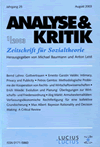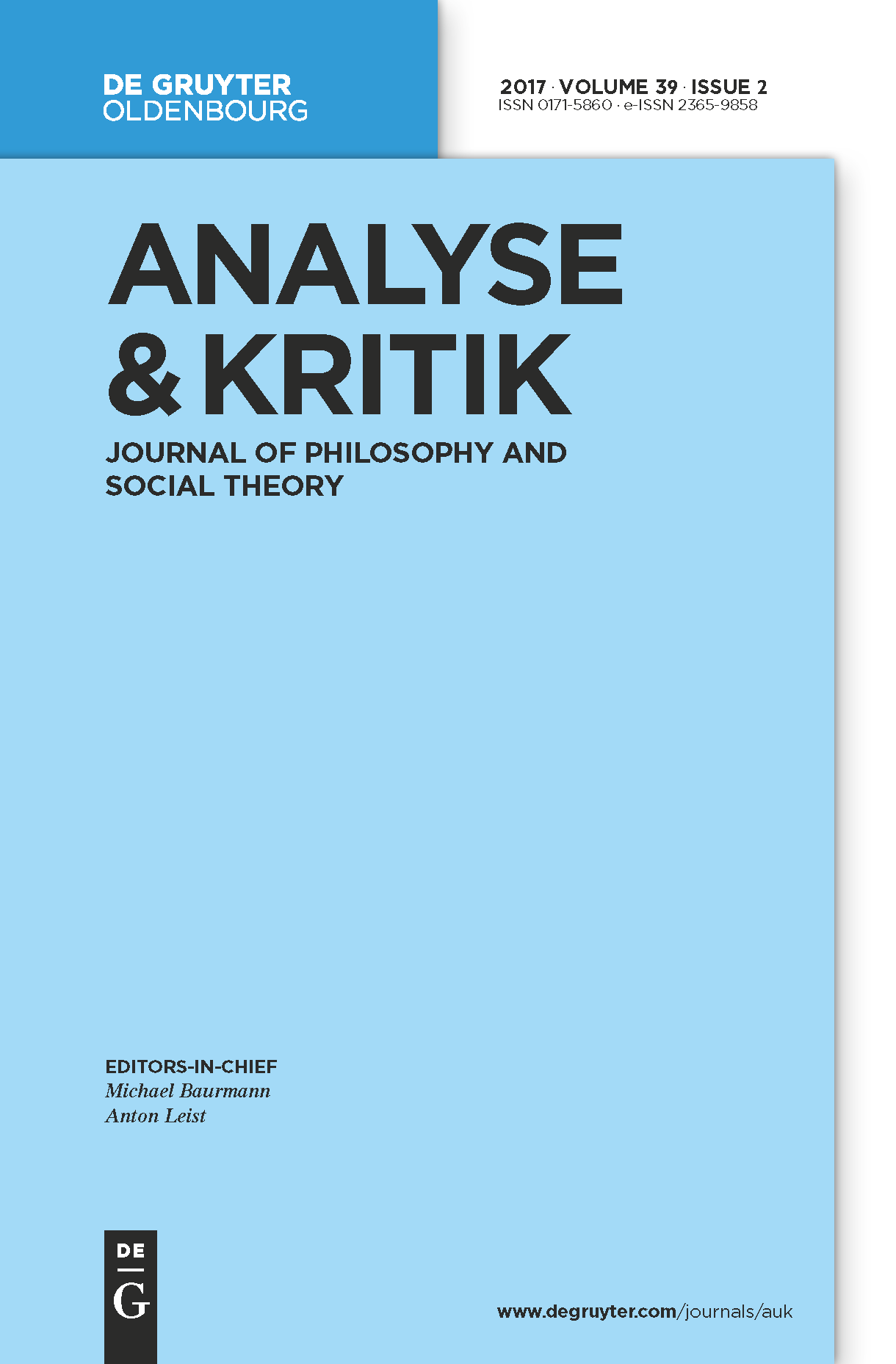Suchergebnisse
"Brian Leiter"
Titel: Why Marxism Still Does Not Need Normative Theory
Autor: Brian Leiter
Seite: 23-50
Marx did not have a normative theory, that is, a theory that purported to justify, discursively and systematically, his normative opinions, to show them to be rationally obligatory or objectively valid. In this regard, Marx was obviously not alone: almost everyone, including those who lead what are widely regarded as exemplary `moral´ lives, decide and act on the basis of normative intuitions and inclinations that fall far short of a theory. Yet self-proclaimed Marxists like G. A. Cohen and Jürgen Habermas have reintroduced a kind of normative theory into the Marxian tradition that Marx himself would have ridiculed. This essay defends Marx’s position and tries to explain the collapse of Western Marxism into bourgeois practical philosophy, i.e., philosophizing about what ought to be done that is unthreatening to capitalist relations of production.
Titel: Rorty’s Rejection of Philosophy
Autor: Brian Leiter
Seite: 23-30
I argue that the real puzzle about Richard Rorty’s intellectual development is not why he gave up on ‘analytic’ philosophy—he had never been much committed to that research agenda, even before it became moribund—but why, beginning with Philosophy and the Mirror of Nature (PMN), he gave up on the central concerns of philosophy going back to antiquity. In addition to Rorty’s published works, I draw on biographical information about Rorty’s undergraduate and graduate education to support this assessment, and contrast his rejection of philosophy with Nietzsche’s. Many contemporary philosophers influenced by Quine’s attack on the analytic-synthetic distinction and Sellars’ attack on ‘the Myth of the Given’ (the two argumentative linchpins of PMN) did not abandon philosophical questions about truth, knowledge, and mind, they just concluded those questions needed to be naturalized, to be answered in conjunction with the empirical sciences. Why didn’t Rorty go this route? The paper concludes with some interesting anecdotes about Rorty that invite speculative explanations.

The Normative Turn from Marxism
2015 (37) Heft 1
Editorial
Marxism, both as a Western political movement and an intellectual focus of dispute, lost its academic appeal during the 1970s and 80s, foreshadowing the collapse of `actually existing´ socialism in the early 90s. Within what after the Second World War was called `Western Marxism´, there had been growing awareness of Marx’s early philosophy with its suggestive, if somewhat vague, ideas of a universally productive life and an ideal productive society. In contrast, the stock of (not only offici...

Rorty and Paradigm Change in Philosophy
2019 (41) Heft 1
Editorial
Three years after its foundation, in 1981, this journal presented a contribution by Richard Rorty in German translation, which was republished as ‘Philosophy in America Today’ in another journal the same year and included in Rorty’s first article selection Consequences of Pragmatism (1982). A lively debate on the article and Rorty’s Philosophy and the Mirror of Nature (1979) ensued and drew a lengthy ‘Reply to six critics’ from Rorty. These diversified and historically symptomatic re...